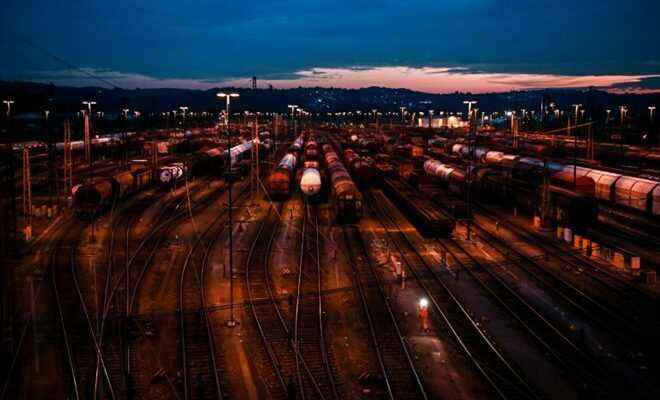DThe European Commission will further lower its forecasts for economic growth in Europe for this year and next, while raising its inflation forecasts (AFP/Archives/Ina FASSBENDER)
The European Commission will further lower its forecasts for economic growth in Europe for this year and next, while raising its inflation forecasts to take into account the consequences of the war in Ukraine, warned Monday the vice-president of the European Commission, Valdis Dombrovskis.
The EU executive is due to present updated figures for the EU and the euro zone on Thursday.
“Economic growth is showing resilience this year. Despite everything, we can expect a downward revision, and even more for next year”, he said, before a meeting of finance ministers in Brussels. “And unfortunately inflation continues to be higher than expected. So it will be revised upwards again,” he added.
The inflation rate in the euro zone broke a new record in June, at 8.6% over one year.
The war in Ukraine had already prompted the Commission to drastically reduce its growth forecasts, due in particular to the surge in energy prices.
On May 16, it had lowered its forecast for growth of Gross Domestic Product (GDP) for the euro zone by 1.3 points in 2022, to 2.7%, and increased its inflation forecast by 3.5 points, to 6.1%, compared to previous figures which had been published before the outbreak of the Russian offensive.
Brussels now fears a complete cut in gas supplies to Russia in response to Western sanctions imposed on Moscow.
A complete shutdown of these deliveries, on which Europe is very dependent, “is not our base scenario, but it is not a risk that can be ruled out. Clearly, we are preparing at EU level and also at Member State level”, explained Valdis Dombrovskis.
A sudden stop in Russian gas deliveries could lead to restrictions for households and businesses, with possible consequences for industrial production.
“We had already taken this adverse scenario into account in our spring forecasts, and it was leading us to negative growth. Unfortunately, things have not changed,” said Economy Commissioner Paolo Gentiloni. .
Today “we are not in this scenario, but the risk of entering it increases”, he acknowledged.
“At the moment, the situation is one of very slow growth, we are not in negative territory. What could change the situation are real shortages” in the supply of gas, he explained.
© 2022 AFP
Did you like this article ? Share it with your friends with the buttons below.




